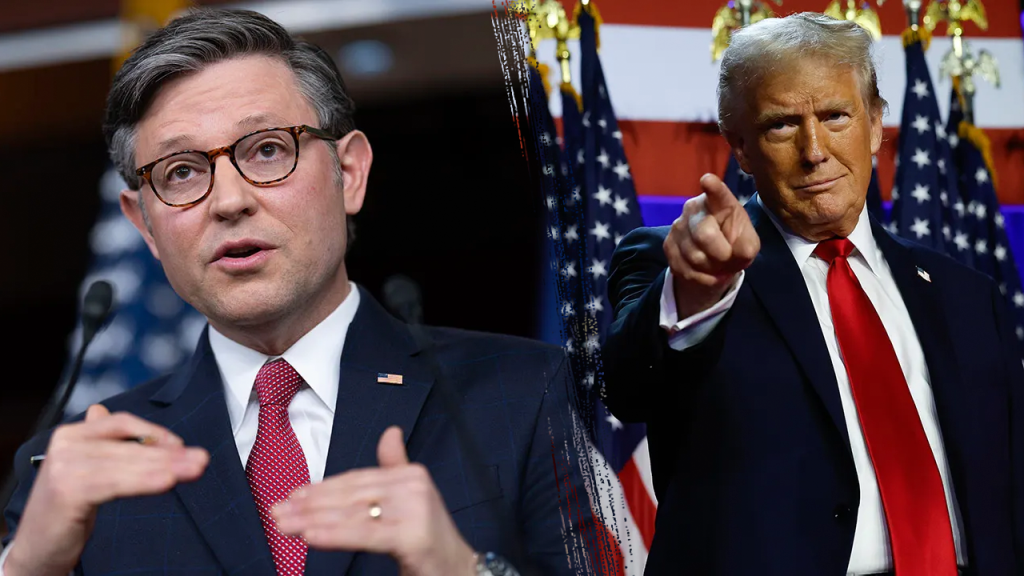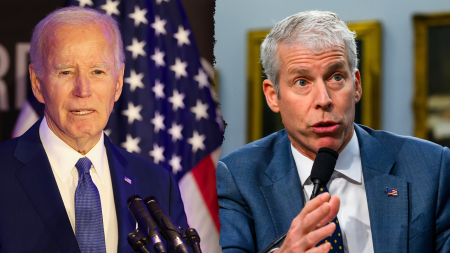Paragraph 1: Setting the Stage for a Conservative Policy Overhaul
The Republican Party, under the nascent leadership of President-elect Donald Trump, is gearing up for a significant conservative policy overhaul. The strategy involves utilizing the budget reconciliation process to expedite the passage of a comprehensive legislative package encompassing key Republican priorities. This approach, confirmed by sources close to the discussions, aims to bypass the Senate’s traditional 60-vote requirement, enabling the GOP to enact their agenda with a simple majority. The ambitious timeline sets a target of May for both the House and Senate to present the finalized bill to President-elect Trump for his signature. This unified front is expected to quell internal disagreements within the party regarding the execution of the reconciliation process and solidify the path forward for a swift legislative victory.
Paragraph 2: Navigating the Reconciliation Process and its Challenges
The reconciliation process, while offering a streamlined pathway for enacting budgetary and fiscal policy changes, presents unique procedural hurdles. The Senate parliamentarian plays a crucial role in determining the permissible scope of the legislation, ensuring its adherence to fiscal matters. This constraint has historically posed challenges for both parties, including the Democrats’ unsuccessful attempt to include comprehensive immigration reform within a reconciliation bill. Republicans now face similar limitations, particularly concerning their intentions to incorporate border security provisions. Furthermore, the inclusion of an extension of Trump’s 2017 Tax Cuts and Jobs Act, along with measures related to energy and defense, adds complexity to the legislative maneuvering.
Paragraph 3: Intraparty Debate on Single vs. Dual Reconciliation Bills
The decision to pursue a single, omnibus reconciliation bill emerged from internal Republican debates regarding the optimal strategy. Senate Majority Leader John Thune had initially proposed a two-bill approach, separating border security and defense into one bill and tax policy into another. This plan garnered support from prominent Trump advisor Stephen Miller. However, this proposal sparked significant opposition within the House Ways and Means Committee, who argued that two reconciliation bills would be excessively challenging and potentially jeopardize the extension of expiring tax provisions from the 2017 tax cuts. Their concerns focused on the increased workload and the risk of jeopardizing crucial tax benefits for Americans if the second bill faced delays or obstruction.
Paragraph 4: The Case for a Unified Reconciliation Bill and its Potential Impact
House Ways and Means Committee Chairman Jason Smith strongly advocated for a single, comprehensive reconciliation bill encompassing border security, energy, permitting reform, and tax policy. He argued that combining these priorities into one legislative package would maximize their chances of success and ensure the timely extension of the expiring tax cuts. Furthermore, he emphasized the potential economic consequences of failing to extend these tax provisions, warning of a potential 22% tax increase for average Americans. This argument resonated within the party, underscoring the importance of presenting a unified front to deliver on their promises to the American people.
Paragraph 5: Differing Perspectives on the Complexity of the Two-Bill Approach
While the House Ways and Means Committee expressed concerns about the feasibility of two reconciliation bills, other lawmakers maintained that the approach was manageable. House Freedom Caucus Chairman Andy Harris acknowledged the importance of both border security and tax policy but suggested that pursuing them on parallel tracks was viable. He recognized the inherent complexities of tax legislation but argued that prioritizing border security demonstrated a commitment to addressing a critical national concern. This differing perspective highlighted the varied approaches within the Republican Party regarding the most effective legislative strategy.
Paragraph 6: Trump’s Endorsement and the Path Forward
President-elect Trump’s endorsement of the single-bill approach served as a decisive factor in unifying the Republican Party behind this strategy. His support solidified the decision to pursue a comprehensive legislative package encompassing all key Republican priorities within a single reconciliation bill. This unified front is expected to streamline the legislative process and maximize the chances of enacting their agenda swiftly. The convergence on this approach brings an end to internal divisions and sets the stage for a concerted effort to deliver on their campaign promises. With a clear direction established, the Republicans are now poised to embark on a concerted effort to reshape American policy in line with their conservative principles.










